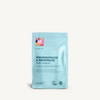Taking care of your intimate health often falls to the bottom of the priority list. Yet, neglecting it can impact more than just physical comfort—it can affect your confidence, relationships, and overall well-being. Intimate health is about more than just hygiene; it’s a fundamental part of feeling good in your own body.
When it comes to women’s health, intimate wellness should never be overlooked. Intimate health encompasses the physical, emotional, mental, and social aspects of a woman’s sexual and reproductive well-being. Maintaining healthy vaginal and urinary systems, hormonal balance, and overall comfort not only improves physical health but also contributes to feeling confident and connected with your body. Prioritising intimate health helps you thrive in every aspect of your life, from personal relationships to daily activities.

What Is Intimate Health?
Intimate health encompasses the physical, emotional, mental, and social aspects of a woman's sexual and reproductive well-being. Physically, it involves maintaining healthy vaginal and urinary systems, hormonal balance, and comfort. Emotionally, it’s about feeling confident and at ease with your body.
According to the World Health Organization, sexual health is "a state of physical, emotional, mental, and social well-being in relation to sexuality." An 2023 systematic review reinforces this by showing how positive psychological well-being—like high self-esteem and lower anxiety—can lead to improved sexual satisfaction and function (1). In contrast, stress and mental health issues can negatively affect desire and intimacy.

Why Intimate Health Should Be a Priority
Neglecting intimate health can lead to discomfort and stress, impacting your quality of life. On the other hand, making it a priority fosters a sense of empowerment and well-being. From managing hormonal changes during menopause to addressing issues like vaginal dryness and recurrent infections, paying attention to intimate health means actively supporting your overall vitality and happiness.
Physical Well-being
Maintaining intimate health is crucial for preventing common infections such as urinary tract infections (UTIs) and yeast infections. These conditions can cause discomfort and, if left untreated, may lead to more serious health issues. Hormonal changes during menopause can disrupt the natural balance of the vaginal environment, making it more susceptible to infections.
D-mannose, a naturally occurring sugar, has been studied for its role in preventing UTIs. Research indicates that D-mannose can inhibit the adhesion of bacteria to the urinary tract lining, thereby reducing the risk of infection. In fact, a study published recently (2) concluded that D-mannose is a promising alternative to antibiotics for treating acute uncomplicated UTIs in women . Incorporating D-mannose supplements into your routine may support urinary tract health, especially during the menopausal transition.
At Inspiriko, we understand the challenges women face during menopause, which is why our D-Mannose Complex Capsules are specially formulated to offer triple-action defence against UTIs. Powered by patented D-Mannose, cranberry extract, and Vitamin C, our supplement helps cleanse, prevent, and maintain optimal bladder health, so you can feel confident and comfortable every day.
Emotional and Mental Health
Neglecting intimate health can have psychological repercussions, including increased anxiety and diminished self-confidence. Experiencing discomfort or concerns about one's intimate well-being can lead to stress and affect overall mental health. Conversely, prioritising intimate health can enhance self-esteem and foster a positive body image.
Engaging in regular self-care practices, seeking medical advice when necessary, and maintaining open communication about intimate health concerns are essential steps toward emotional well-being. By addressing intimate health proactively, women can experience improved mental health outcomes and a greater sense of empowerment.

Sexual Health and Relationship Well-being
Menopause often brings changes such as vaginal dryness and discomfort, which can impact sexual intimacy and satisfaction. These physical changes may lead to decreased sexual activity, potentially affecting relationship dynamics. However, maintaining sexual activity during menopause has been associated with better sexual function and reduced menopausal symptoms.
A study found that menopausal women who remained sexually active reported lower menopause symptom scores and better sexual function compared to those who were not sexually active (3). Implementing strategies such as using lubricants, engaging in open communication with partners, and seeking medical advice can help manage these changes. Prioritising sexual health is integral to overall well-being and relationship satisfaction during the menopausal transition.
Practical Tips for Supporting Intimate Health
When it comes to intimate health, taking proactive steps can make a world of difference. Whether it’s choosing the right products or adopting simple daily habits, caring for your body is essential, especially as you navigate the changes that come with menopause. Here’s how to stay on top of your intimate well-being.
1. Hygiene and Self-Care
One of the simplest ways to support intimate health is through proper hygiene. Opt for gentle, pH-balanced cleansers specifically designed for intimate areas. Harsh soaps can disrupt the natural vaginal flora, leading to irritation or infections. Instead, choose fragrance-free options that maintain your body’s natural balance.
Wearing breathable, cotton underwear is another easy yet effective habit. Synthetic fabrics can trap moisture, creating a breeding ground for bacteria (4). Choose natural fibres to help keep your intimate area dry and comfortable. Additionally, staying hydrated is crucial—not just for overall health but for maintaining vaginal moisture, too. Aim for at least 1.5 to 2 litres of water daily to support healthy tissue function.
Maintaining balanced nutrition also plays a key role. A diet rich in whole foods, particularly those high in vitamins and minerals, supports your body’s natural defences. Foods rich in probiotics, like yoghurt and kefir, can also contribute to maintaining a healthy vaginal microbiome (5).

2. Probiotics and Natural Supplements
Speaking of probiotics, these beneficial bacteria are crucial for keeping your vaginal environment balanced. They help maintain the right pH levels and prevent the overgrowth of harmful microbes. Adding probiotic-rich foods to your diet or taking a high-quality supplement can support intimate health, especially during menopause when hormone changes can impact vaginal flora.
Inspiriko’s products like Love Thy Gut are formulated to support your digestive and vaginal health simultaneously, providing a holistic approach to well-being. Incorporating such supplements can make it easier to maintain your body's natural balance and reduce the risk of infections.
3. Regular Health Checks
Routine gynaecological exams are non-negotiable when it comes to intimate health. As women age, especially during perimenopause and menopause, it’s essential to keep an open line of communication with healthcare providers. Regular check-ups help identify changes early, allowing you to address concerns like vaginal dryness or infections before they escalate.
Monitoring your body’s changes is also vital. Hormonal shifts can impact intimate health in surprising ways, so don’t hesitate to discuss symptoms like discomfort, dryness, or recurrent UTIs with your doctor. Sometimes, incorporating targeted products can make a big difference. For example, D-Mannose Complex Capsules are known for their role in preventing UTIs, offering a natural, science-backed option to support urinary health.

Being proactive about intimate health means embracing a routine that prioritises comfort and well-being. With the right hygiene practices, thoughtful use of supplements, and regular medical support, you can maintain your intimate health and feel your best, no matter your age.
Conclusion
For too long, intimate health has been shrouded in embarrassment and silence. Many women, particularly those over 40, feel uncomfortable discussing issues like vaginal dryness, UTIs, or sexual well-being—even with close friends or healthcare providers. But it’s time to break the taboo. Talking openly about intimate health not only normalises these conversations but also empowers women to seek the support they deserve.
One way to start is by creating safe spaces for dialogue—whether it’s among friends, in online communities, or during routine healthcare appointments. Remember, intimate health is just as important as any other aspect of well-being. When speaking to healthcare professionals, be direct and honest about your symptoms or concerns. Prepare a few key points beforehand if you find it difficult to articulate your thoughts. Most importantly, know that your experiences are valid, and seeking help is a proactive step toward self-care.
FAQs
Why is intimate health more important as I age?
Can natural supplements improve intimate health?
How can I maintain vaginal moisture during menopause?
Are UTIs more common during menopause?
References for the blog
-
Arcos-Romero, A.I. and Calvillo, C., 2023. Sexual Health and Psychological Well-Being of Women:
A Systematic Review. Healthcare (Basel), 11(23), p.3025. doi:10.3390/healthcare11233025. -
Wagenlehner, F., Lorenz, H., Ewald, O. and Gerke, P., 2022. Why d-Mannose May Be as Efficient as Antibiotics in the Treatment of Acute Uncomplicated Lower Urinary Tract Infections-Preliminary Considerations and Conclusions from a Non-Interventional Study.
Antibiotics (Basel), 11(3), p.314. doi:10.3390/antibiotics11030314. -
Fausto, D.Y., Martins, J.B.B., da Silveira, J., Cardoso, F.L. and de Azevedo Guimarães, A.C., 2023. Association between menopausal symptoms, sexual function, and sexual activity - a cross-sectional study.
Prz Menopauzalny, 22(4), pp.220-226. doi:10.5114/pm.2023.133570. -
Kang, C., Kim, S., Kim, S. and Lee, J.W., 2017. The Significant Influence of Bacterial Reaction on Physico-Chemical Property Changes of Biodegradable Natural and Synthetic Polymers Using Escherichia coli.
Polymers, 9(4), p.121. doi:10.3390/polym9040121. -
Mei, Z. and Li, D., 2022. The role of probiotics in vaginal health.
Frontiers in Cellular and Infection Microbiology, 12, doi:10.3389/fcimb.2022.963868.








